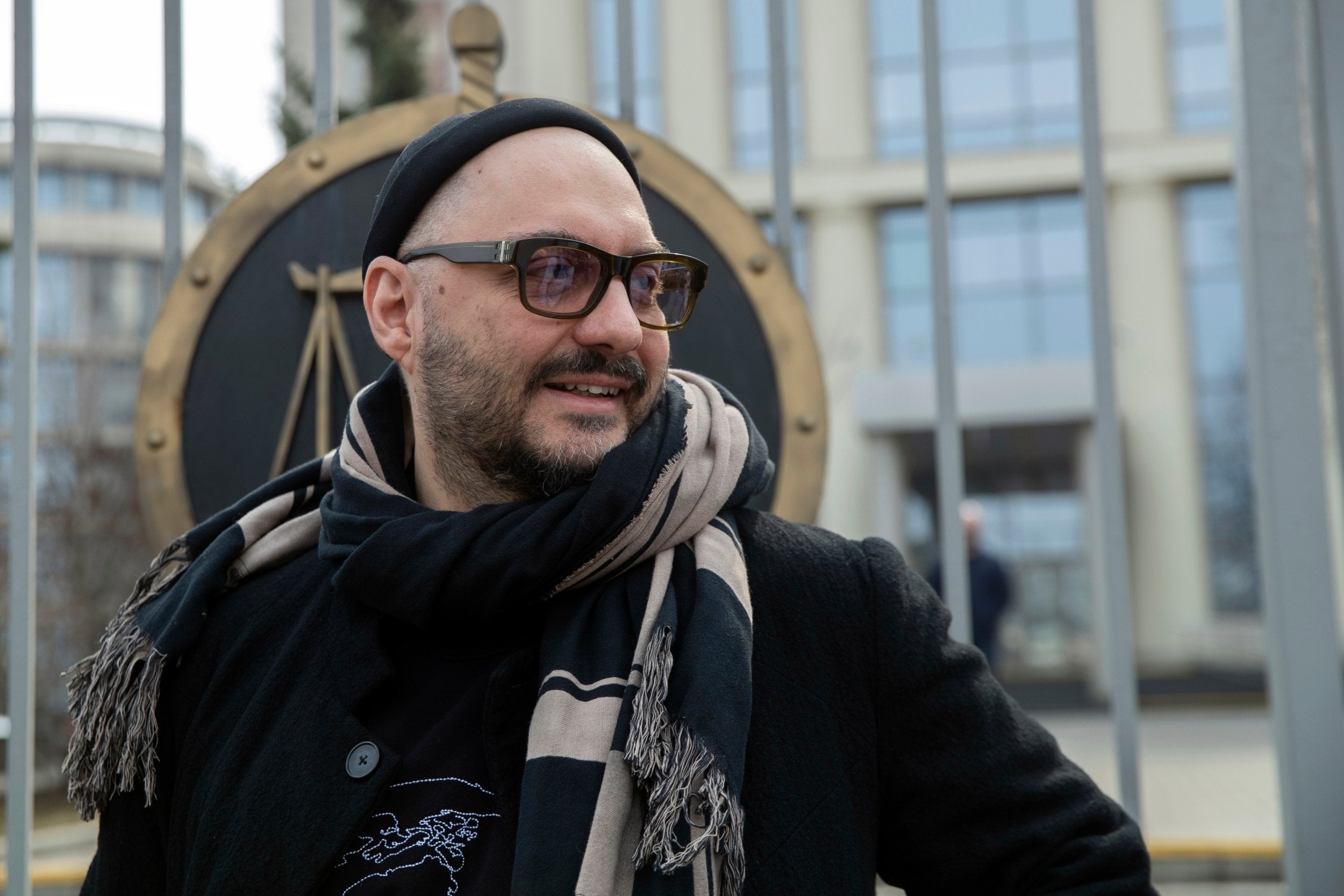Director Kirill Serebrennikov released from house arrest in Russia
Cannes-nominated director faces embezzlement charges some claim are politically motivated

Your support helps us to tell the story
From reproductive rights to climate change to Big Tech, The Independent is on the ground when the story is developing. Whether it's investigating the financials of Elon Musk's pro-Trump PAC or producing our latest documentary, 'The A Word', which shines a light on the American women fighting for reproductive rights, we know how important it is to parse out the facts from the messaging.
At such a critical moment in US history, we need reporters on the ground. Your donation allows us to keep sending journalists to speak to both sides of the story.
The Independent is trusted by Americans across the entire political spectrum. And unlike many other quality news outlets, we choose not to lock Americans out of our reporting and analysis with paywalls. We believe quality journalism should be available to everyone, paid for by those who can afford it.
Your support makes all the difference.The Russian director Kirill Serebrennikov has been freed from house arrest, 20 months into a detention widely criticised as unreasonably severe.
Yet the abrupt change of direction from Russian authorities – announced on Monday morning in a hearing at Moscow’s Meshchansky courtroom – offers few clues on his eventual sentencing.
Mr Serebrennikov, 49, still stands accused, along with three others, of defrauding the Russian state to the tune of 133m rubles (£1.5m). He has denied the charges, describing them as “absurd”, but few expect grace from a system that returns less than 0.1 per cent non-guilty verdicts.
The court order, which changed detention conditions to a no-travel order, also released Mr Serebrennikov’s co-defendants Sofia Apfelbaum and Yury Itin from house arrest.
Immediately after the decision, the director said he would soon return to working at the Gogol Centre, the Moscow theatre that he rebuilt into an experimental hub since taking over in 2012.
Despite the limitations placed on him during detention – he was banned from using a phone or the internet – Mr Serebrennikov has remained remarkably productive, putting on new shows to critical acclaim in Russia and Europe.
“Now is the time for celebration,” he told journalists outside the courtroom. “Immediately, soon, I’ll be back. It’s not easy psychologically, but I have a lot of things to do. We have shows, rehearsals to get on with.”
Mr Serebrennikov’s dramatic arrest in August 2017 was the first time a director of such prominence had been arrested since Vsevolod Meyerhold was taken by Stalin’s secret police in 1939.
State prosecutors claimed Mr Serebrennikov had headed up a “crime syndicate” that “embezzled” a government grant awarded to develop experimental theatre.
Initially, they said he had taken money for a play that never saw the light of day.
After it was pointed out that the play was not only performed, but received theatrical awards, charges were changed to other supposed financial irregularities.
Supporters say the charges against the director are politically motivated. Mr Serebrennikov regularly touches on taboo subjects for Russia – from homosexuality to political protest.
His ongoing detention has become a cause celebre, with hundreds of artists and cultural figures signing letters in support. But Mr Serebrennikov has also been defended by liberal elements within the system itself.
President Vladimir Putin’s own press secretary Dmitry Peskov attended the premiere of Mr Serebrennikov’s controversial Nureyev at the Bolshoi Theatre in December 2017, for example, and was even seen applauding. A few rows away was Alexei Kudrin, the former finance minister considered close to the president. Mr Kudrin later said it was “unfair” that the director was not allowed to attend his own premieres.
Mr Putin has offered contradictory positions on the affair. At one point, he called investigators “fools”. Later, he walked back the position, suggesting that “serious economic crimes” were involved.
On Monday at a press conference, Peskov refused to comment on Mr Serebrennikov’s release from house arrest.
There had been evidence of dealmaking behind the scenes last week, with a judge delaying a final decision on an appeal by Mr Serebrennikov’s lawyers to release him from house arrest.
Courts can occasionally soften detention terms in prominent cases when there is a need to look merciful
Zoya Svetova, a prominent human rights activist, prisons expert and columnist for news site MBK Media, told The Independent the decision was the result of power games behind the scenes.
“Don’t forget this is Byzantium,” she said.
“Courts can occasionally soften detention terms in prominent cases when there is a need to look merciful.”
What it didn’t do was offer any positive sign about the eventual verdict, she said. That would be decided, as it always was, in “the corridors of Kremlin”.
She said: “Unfortunately, it’s been clear for some time that Mr Serebrennikov is headed for a conviction and custodial sentence.”
Join our commenting forum
Join thought-provoking conversations, follow other Independent readers and see their replies
Comments